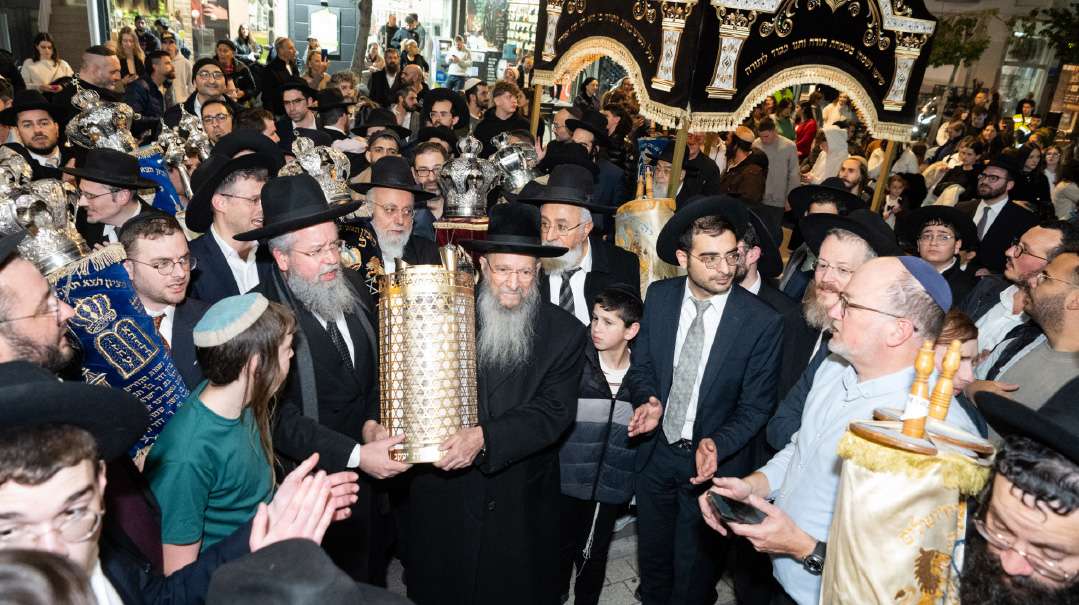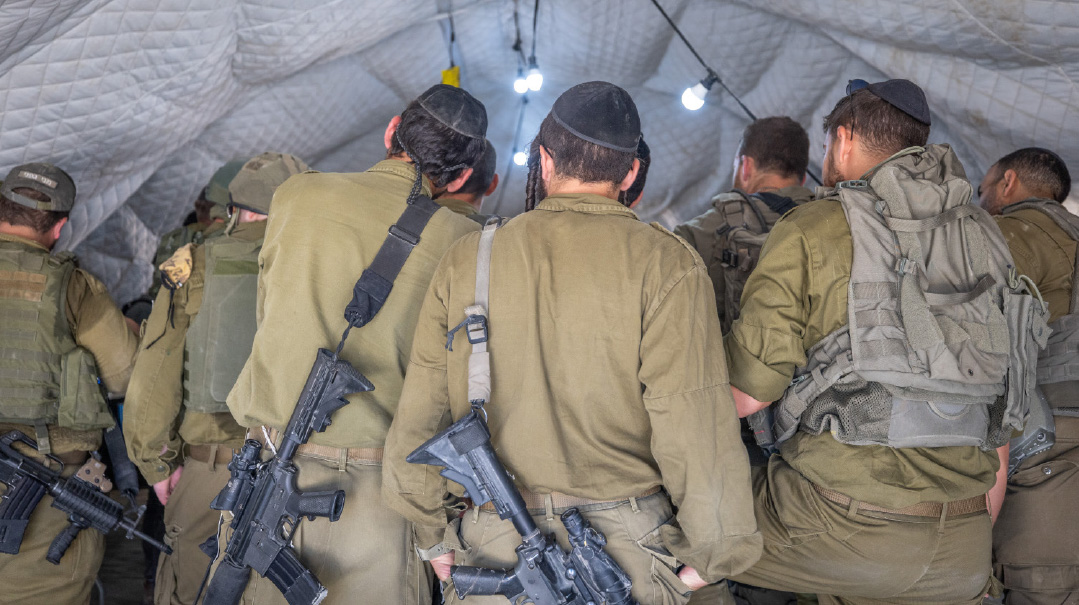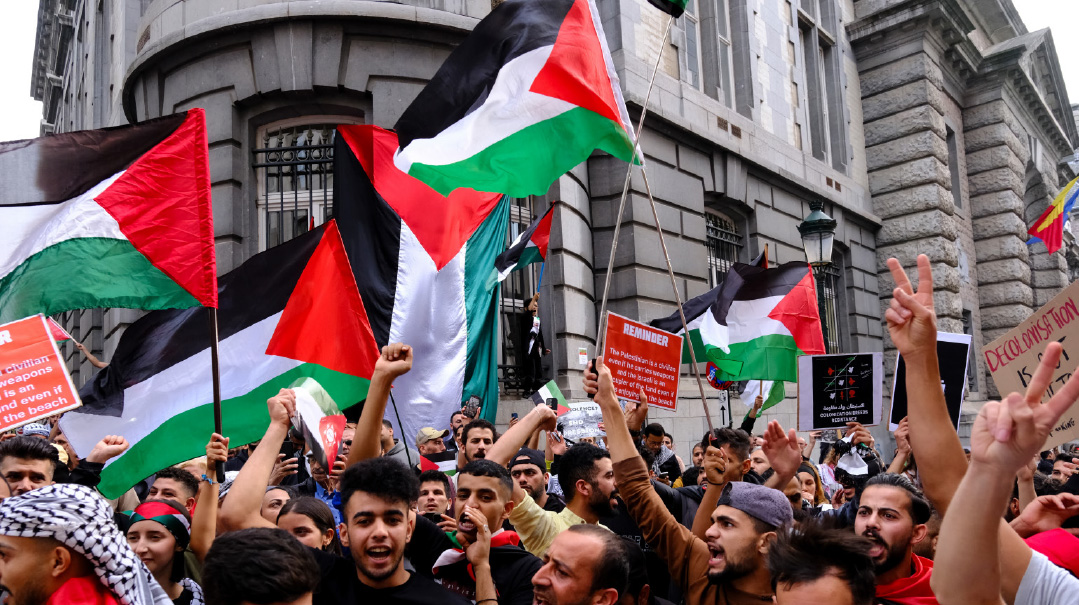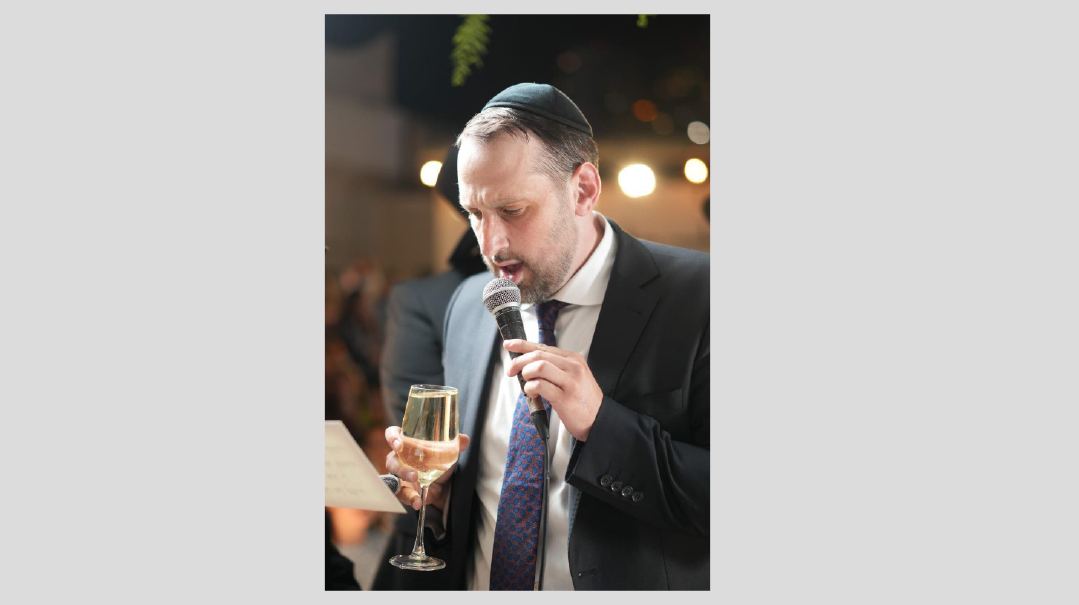Don’t the Rabbis Know?

Amid the government’s assault on the yeshivos, there is no end in sight to the greatest anti-chareidi wave in decades
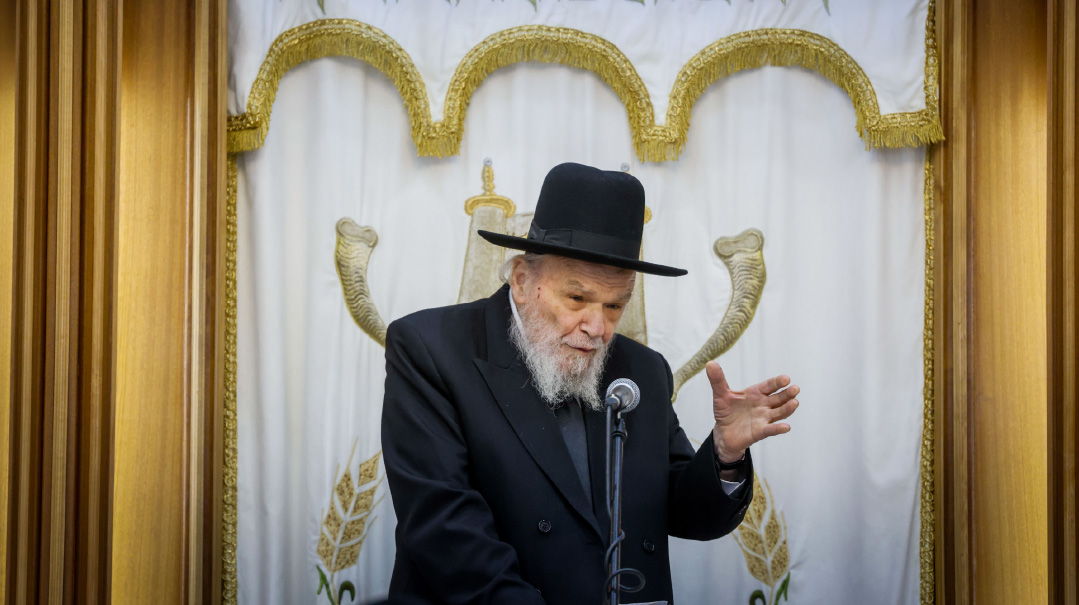
Photo: Flash90
N
owadays, even filling up with gas in Israel can feel like an act of homage. That’s because of the proliferation of memorials for fallen soldiers all over the gas pumps. Israelis have long had a mania for bumper stickers, and since the war began, these oblong pieces of paper with the soldiers’ favorite sayings have sprouted everywhere. Many of the epigrams are about purpose in life, and living for others — showcasing the fact that as a society even secular Israel is far more meaning-driven than much of the liberal West.
In fact, there are so many deaths that you need a 9/11 memorial wall — not a gas station forecourt — to do the stickers justice. Think of the numbers: around 2,000 fallen. With a Jewish population of 7 million, Israel’s casualty figures are the per capita equivalent of 85,000 deaths in the US. For perspective, American casualties in the four years in which the US fought during World War II were about 400,000. Which means that a war fought over a tiny strip of land is almost half as deadly as the greatest conflagration known to man.
For many Ramat Beit Shemesh locals like myself, the horrible reality of the grinding Gaza war was brought home again recently, with the death of Moshe Shmuel Noll, one of five soldiers from chareidi homes to lose their lives in an ambush in Gaza. This was a young man from a Chabad home who’d struggled mightily for every single attainment in learning and davening, and had found meaning in protecting his fellow Jew.
Even if you didn’t go into the shivah, the mourning tent set up on one the neighborhood’s main streets was hard to miss.
The sight was a reminder of something that is all too easy to forget after almost two years of war. As we debate the merits of hostage release versus finishing Hamas, trade armchair general insights into what Bibi and Trump did or didn’t achieve against Iran, the levayahs on our doorsteps are a reminder of the burden that is borne by those who have to endanger their lives.
Someone I know whose sons have cycled in and out of Gaza told me of a 1 a.m. knock on the door a few months ago. In dread, he went to open it, all too aware that it could be the military police come to share news of tragedy.
In the event, it was a neighbor, who’d chosen a strange time to complain about a plumbing issue. When I shared this story with someone whose son is in a tank inside Gaza, his mouth dropped in identification with the shock of it all.
It’s stories like that — and the tragedy visited on so many families all over the country — that bring home the staggering human cost that falls on those who serve, even if they survive the ordeal unscathed.
As the Netanyahu government teeters once again over the failure to pass a draft law, that thought is joined by the realization that in the public arena, things could get even uglier.
A wartime election campaign prompted by a failure to pass a draft law will be about one thing only: bashing the chareidim. Right and left will compete to vilify the cowardly, fanatic, obscurantist, un-Jewish draft-dodgers. Erstwhile friend and longtime foe will race to the bottom to find the worst sanctions for yeshivah bochurim.
Such an election campaign will see the return of a hackneyed phrase, consisting of four of the most toe-curling words in the English language: “Don’t the rabbis know.”
As in: “Don’t the rabbis know that after October 7, everything needs to change?”
As a genre, “Don’t the Rabbis Know?” is as old as the hills — or one particular hill in the Sinai Peninsula.
But since the Hamas onslaught, the phrase and the attitude it represents have become a mantra. It’s the main text or subtext of endless Shabbos dinner controversies and media bellyaches.
There’s the hostile critic’s version: “Don’t the rabbis understand that the chareidim can’t carry on as before and sponge off everyone else?”
There’s the blogger’s version: “It’s true that Torah study is very important, but don’t the rabbis know that Israel needs a big army now?”
Or even the lomdish version: “Don’t the rabbis know that according to the Rambam, this is a milchemes mitzvah?”
The bottom line of all the various versions is the assumption that “The Rabbis” as an institution, don’t know. They don’t get it. They’re simply too elderly, cloistered, blinkered and possibly unfeeling to grasp what all normal people understand: that everything has to change.
That attitude — spoken or inferred — underlies so much of the conversation about the draft, about the attitude of the chareidi public and its gedolim.
It ignores the genuine bind that the chareidi world is in. On the one hand, gedolim are adamant that to weaken the Torah world is national suicide — all the more so in the middle of an existential war. Even as the army cries out for more manpower, the solution isn’t the gutting of the world’s main Torah center. The Jewish people need more lomdei Torah, not less.
On the other hand, in the post-October 7 world, there is no realistic way to convey to a war-weary Israeli public the finer points of Rav Chaim of Volozhin’s teachings about how Torah protects the Jewish people.
All of which means that amid the government’s assault on the yeshivos, there is no end in sight to the greatest anti-chareidi wave in decades.
That’s not just a tragedy for the chareidi world, but for the country as a whole. It’s an objective tragedy that large numbers of Israelis — often whipped up by a secular media — view talmidei chachamim as shirkers, gedolim as unfeeling.
There are creative solutions to the draft crisis that would free up large amounts of combat manpower currently involved in rear-quarters duty. They involve working with the unique characteristics of the chareidi community — and making peace with one red line, which is not to draft anyone who wants to learn Torah.
The materialistic view that a yeshivah bochur is only as valuable as the infantry duty he might perform is perhaps the greatest impediment to a new arrangement between the chareidi world and the country’s security establishment.
Anyone with their eyes open can see that our existence in this holy sliver of land by the Mediterranean is supernatural. The air force prepared for many pilots to be shot down over Iran a few weeks ago — miraculously, none were.
That’s what gedolei Yisrael mean when they talk of the protection that Torah scholars bring. That’s why “The Rabbis” continue to insist that drafting bochurim isn’t an option.
Whether we understand how the IDF will make up numbers, or not; whether we can figure out how the gedolim’s position fits in with the Rambam or not, let’s not stoop to bitter charges against those who learn Torah, accusations that they don’t feel the pain of those sacrificing on the front lines.
Because it’s a tenet of belief that has endured throughout our long history that, yes, the Rabbis know.
(Originally featured in Mishpacha, Issue 1071)
Oops! We could not locate your form.

